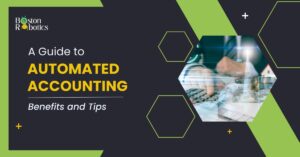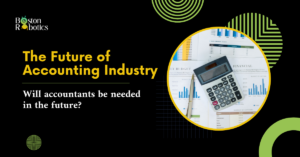Boston Robotics is a robotic process automation (RPA) company that specializes in developing robots for the accounting industry.
Founded in 2023 by Jayanathi Ganapathy, Boston Robotics has created a range of RPAs that can automate a variety of accounting tasks.
These RPAs are designed to perform 11 key functions, including invoice processing, invoice payment, expense booking, payroll processing, credit card transactions, accounting bank transactions, accounting deposits, bank and credit card reconciliation, revenue journal entries, accounting inter-company transactions, and posting month-end journal entries.
By automating these tasks, Boston Robotics’ RPAs can increase efficiency and reduce errors in accounting processes.
This frees up employees to focus on more strategic and analytical tasks, improving overall productivity and quality of work.
The robots are equipped with advanced sensing and machine-learning capabilities, allowing them to navigate their environments and perform tasks autonomously.
They can also work collaboratively with humans, providing a safe and efficient way to automate tasks in a workspace.
As technology continues to advance, it is likely that we will see even more applications for robotics in accounting, and Boston Robotics is well-positioned to lead the way in this field.
II. The Impact of Boston Robotics on Accounting
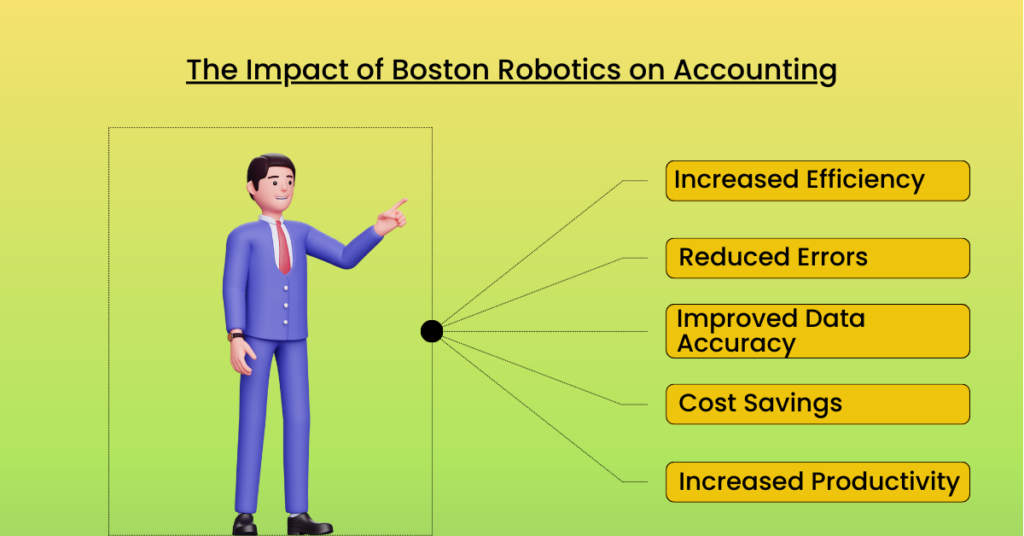
The impact of Boston Robotics on the accounting industry has been significant.
By automating repetitive and time-consuming accounting tasks, Boston Robotics’ RPAs have transformed the way accounting firms operate.
Here are some of the key ways that Boston Robotics has impacted the accounting industry:
1. Increased Efficiency:
The RPAs developed by Boston Robotics can perform accounting tasks more quickly and accurately than humans. This has led to increased efficiency in accounting processes, allowing accounting firms to complete tasks more quickly and accurately.
2. Reduced Errors:
Human error can be a significant problem in accounting. Boston Robotics’ RPAs are designed to minimize errors by performing tasks consistently and accurately.
3. Improved Data Accuracy:
Accurate data is essential for accounting. Boston Robotics’ RPAs can collect, process, and analyze data with greater accuracy than humans, providing more reliable insights into a company’s financial performance.
4. Cost Savings:
Automating accounting tasks can save accounting firms money by reducing the need for manual labor. This allows firms to allocate resources more efficiently, potentially reducing costs.
5. Increased Productivity:
By freeing up employees to focus on more strategic and analytical tasks, Boston Robotics’ RPAs can increase overall productivity in accounting firms.
Overall, Boston Robotics’ impact on accounting has been significant.
By automating repetitive and time-consuming tasks, Boston Robotics has transformed the accounting industry, allowing firms to operate more efficiently and accurately while reducing costs and increasing productivity.
III. Key Features of Boston Robotics’ Technology
The key features of Boston Robotics’ technology are what sets it apart from other robotic process automation (RPA) solutions. Here are some of the most important features of Boston Robotics’ technology:
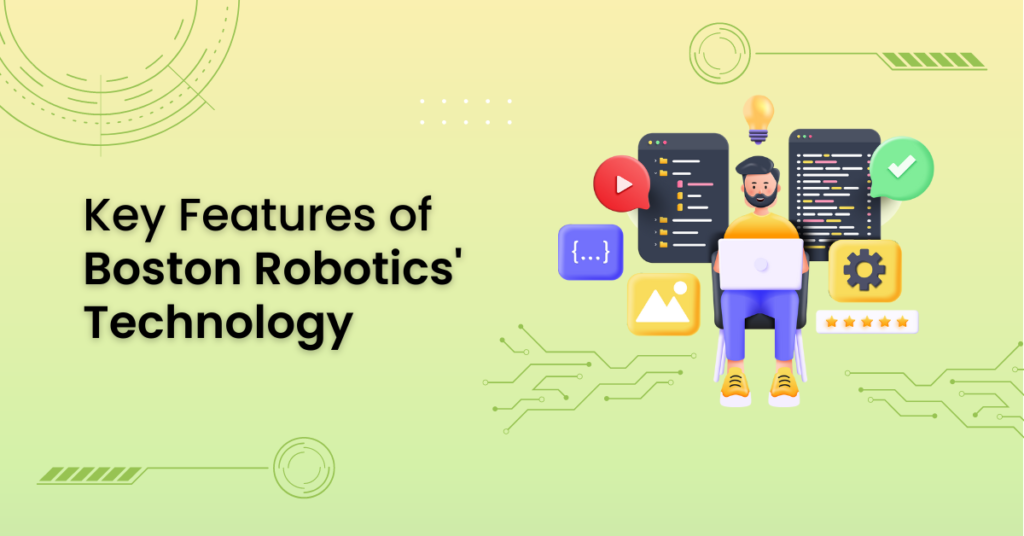
- Advanced Sensing and Machine Learning: Boston Robotics’ RPAs are equipped with advanced sensing and machine learning capabilities. This allows them to navigate their environment, identify and analyze data, and perform tasks autonomously.
- Collaborative Capabilities: Boston Robotics’ RPAs are designed to work collaboratively with humans. This means that they can operate safely and efficiently in a workspace with human employees.
- Customizability: Boston Robotics’ RPAs are highly customizable. They can be tailored to perform specific accounting tasks, making them versatile and adaptable to the needs of different accounting firms.
- Integration: Boston Robotics’ RPAs are designed to integrate with existing accounting software, making it easy to incorporate automation into existing workflows.
- Scalability: Boston Robotics’ RPAs are designed to be scalable. This means that they can handle large volumes of data and perform tasks quickly and efficiently, even as the volume of data grows.
- Flexibility: Boston Robotics’ RPAs are flexible and can be programmed to perform a wide range of accounting tasks, from invoice processing to month-end journal entries.
Overall, Boston Robotics’ technology is designed to be highly advanced, customizable, and adaptable to the needs of different accounting firms.
With its advanced sensing and machine learning capabilities, collaborative design, and scalability, Boston Robotics’ technology has the potential to transform the way accounting firms operate.
IV. Real-World use cases of Boston Robotics in Accounting
Robotic process automation (RPA) has the potential to transform the way accounting is done.
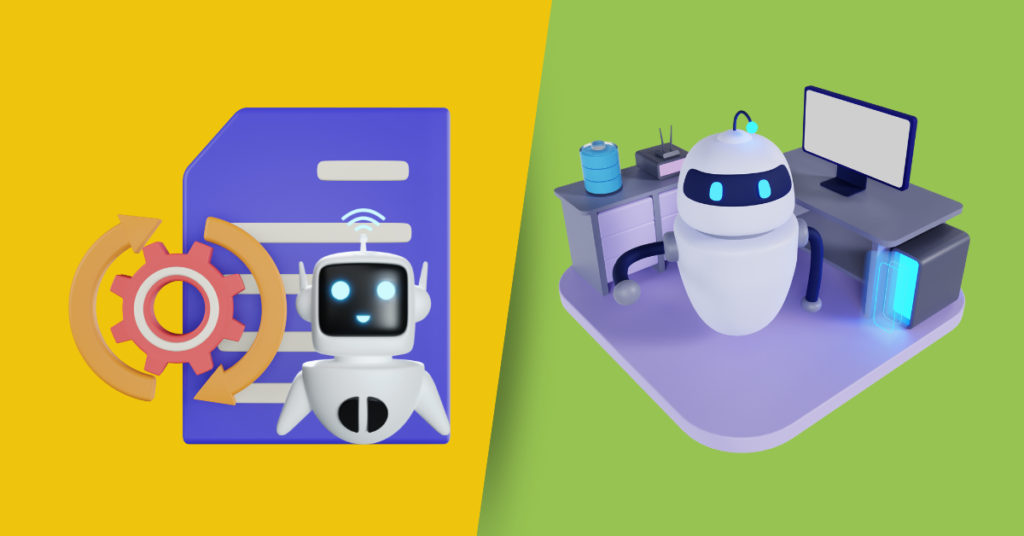
Here are some use cases of RPA in accounting:
- Invoice Processing: RPA can be used to automate the process of receiving, categorizing, and recording invoices. This includes tasks such as data extraction, invoice matching, and vendor validation.
- Expense Booking: RPA can be used to automate the process of recording employee expenses. This includes tasks such as data extraction, expense matching, and reimbursement calculations.
- Payroll Processing: RPA can be used to automate the process of calculating employee paychecks. This includes tasks such as data extraction, payroll processing, and tax calculations.
- Credit Card Transactions: RPA can be used to automate the process of recording credit card transactions. This includes tasks such as data extraction, reconciliation, and report generation.
- Bank Transaction Accounting: RPA can be used to automate the process of recording bank transactions. This includes tasks such as data extraction, account reconciliation, and report generation.
- Accounting Deposits: RPA can be used to automate the process of recording deposits. This includes tasks such as data extraction, deposit matching, and report generation.
- Bank and Credit Card Reconciliation: RPA can be used to automate the process of reconciling bank and credit card statements. This includes tasks such as data extraction, reconciliation, and report generation.
- Revenue Journal Entries: RPA can be used to automate the process of recording revenue journal entries. This includes tasks such as data extraction, journal entry creation, and report generation.
- Accounting Inter-company Transactions: RPA can be used to automate the process of recording inter-company transactions. This includes tasks such as data extraction, transaction matching, and report generation.
- Posting Month-end Journal Entries: RPA can be used to automate the process of posting month-end journal entries. This includes tasks such as data extraction, journal entry creation, and report generation.
RPA has the potential to streamline accounting processes, reduce errors, and increase efficiency.
By automating repetitive and time-consuming tasks, accounting firms can free up employees to focus on more strategic and analytical tasks, improving overall productivity and quality of work.
V. Potential Challenges of Implementing Boston Robotics in Accounting
While the benefits of implementing robots in accounting are clear, there are also potential challenges to consider. For example, implementing new technology can be costly and time-consuming.
Additionally, employees may be resistant to change or feel that their jobs are at risk.
It is important for firms to address these concerns and communicate the benefits of implementing robotics technology in a way that is clear and transparent.
The Future of Boston Robotics in Accounting
As technology continues to advance, it is likely that we will see even more applications for robotics in accounting.
For example, robots could be used to perform tax calculations or to automate financial reporting.
Additionally, as robotics technology becomes more advanced and affordable, we may see smaller accounting firms adopting it as well.
Conclusion
Boston Robotics’ robots have the potential to revolutionize the accounting industry by automating repetitive tasks and freeing up employees to focus on more strategic and analytical work.
While there are potential challenges to implementing this technology, the benefits are clear.
Editor’s Choice:
The Rise of Intelligent Automation: How AI and Robotics Work Together
Automation in Human Resources: Streamlining Recruitment and Onboarding Processes


